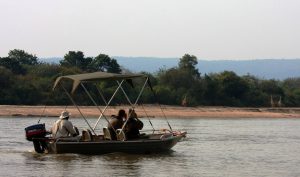How Rwanda Leads the Way in Sustainable Tourism
Rwanda, often referred to as the “Land of a Thousand Hills,” has become a global leader in sustainability. The country has embraced innovative policies and practices to protect its environment, promote eco-friendly development, and ensure long-term social and economic sustainability. How Rwanda Leads the Way in Sustainable Tourism Here’s how Rwanda is setting a benchmark in sustainability:
1. A Ban on Plastic Bags
Rwanda was one of the first countries in the world to implement a total ban on non-biodegradable plastic bags in 2008. This bold step has significantly reduced plastic pollution and improved waste management. Key highlights include:
- Enforcement: Travelers are prohibited from bringing plastic bags into the country, and businesses must use biodegradable alternatives.
- Results: Cleaner streets, rivers, and rural areas, contributing to Rwanda’s reputation as one of the cleanest nations in Africa.
2. Green Urban Development
Rwanda’s capital, Kigali, is a model city for sustainable urban planning. The government prioritizes:
- Efficient Waste Management: Kigali has effective waste collection and recycling systems.
- Green Spaces: Parks and public gardens are integrated into urban design to promote biodiversity and reduce carbon footprints.
- Sustainable Construction: Projects like the Kigali Green City Pilot Project aim to build eco-friendly housing and infrastructure using renewable energy and sustainable materials.
3. Conservation and Eco-Tourism
Rwanda is a pioneer in linking conservation with tourism to create sustainable economic opportunities:
- Mountain Gorilla Conservation: Strict regulations on gorilla trekking have helped grow the gorilla population while generating funds for conservation and local communities.
- National Parks: Rwanda’s parks, including Volcanoes, Nyungwe, and Akagera, are managed with an emphasis on protecting ecosystems while providing eco-tourism experiences.
- Revenue Sharing: A portion of tourism revenue is invested directly into local communities, supporting education, healthcare, and infrastructure.
4. Reforestation Efforts
Rwanda has made significant strides in reforestation to combat deforestation and restore biodiversity:
- National Tree Planting Day: Annually, citizens plant millions of trees to restore degraded landscapes.
- Agroforestry: Farmers are encouraged to integrate trees into agricultural lands, improving soil fertility and reducing erosion.
- Gishwati-Mukura National Park: Once degraded, this park has been restored and declared a UNESCO Biosphere Reserve, demonstrating Rwanda’s commitment to forest conservation.
5. Renewable Energy Initiatives
Rwanda is working to achieve universal access to electricity with a focus on renewable energy:
- Off-Grid Solar Power: Rural areas benefit from solar home systems, reducing reliance on kerosene and improving energy access.
- Hydropower: Projects like the Nyabarongo Hydropower Plant contribute to clean energy production.
- Eco-Friendly Cooking: The government promotes efficient cookstoves to reduce deforestation and indoor air pollution.
6. Community-Centered Policies
Rwanda’s approach to sustainability places communities at the heart of its efforts:
- Umuganda: A mandatory monthly community cleanup encourages citizens to work together to maintain their environment.
- Empowering Women: Women play a significant role in sustainable development through leadership roles and access to resources for farming and entrepreneurship.
7. Climate Action
Rwanda has ambitious goals to combat climate change:
- National Climate Action Plan: The government has outlined strategies to reduce greenhouse gas emissions and adapt to climate change impacts by 2050.
- Carbon Neutrality: Rwanda aims to become carbon-neutral by leveraging renewable energy, sustainable agriculture, and eco-tourism.
8. Innovation and Sustainability
Rwanda embraces technology and innovation for a sustainable future:
- Drone Technology: Used for medical deliveries, including blood and vaccines, reducing transportation emissions and improving healthcare access.
- Smart Agriculture: Farmers adopt climate-resilient practices and technologies to improve productivity and reduce environmental impact.
9. Global Recognition and Partnerships
Rwanda’s sustainability efforts have earned international recognition:
- UN Champions of the Earth Award: Rwanda was awarded for its environmental policies and leadership.
- Global Partnerships: Collaborations with organizations like the World Bank and UNEP help Rwanda achieve its sustainability goals.
10. Inspiring Sustainability in Africa
Rwanda’s success serves as a model for other African nations:
- By demonstrating that environmental conservation and economic growth can coexist, Rwanda inspires neighboring countries to adopt similar strategies.
Conclusion How Rwanda Leads the Way in Sustainable Tourism
Rwanda’s commitment to sustainability is evident in its policies, community engagement, and innovative projects. The country’s holistic approach to environmental protection, eco-tourism, and renewable energy not only enhances the lives of its citizens but also positions Rwanda as a global leader in sustainable development. Whether you visit its clean cities or pristine national parks, Rwanda offers a powerful example of how sustainability can drive progress.




